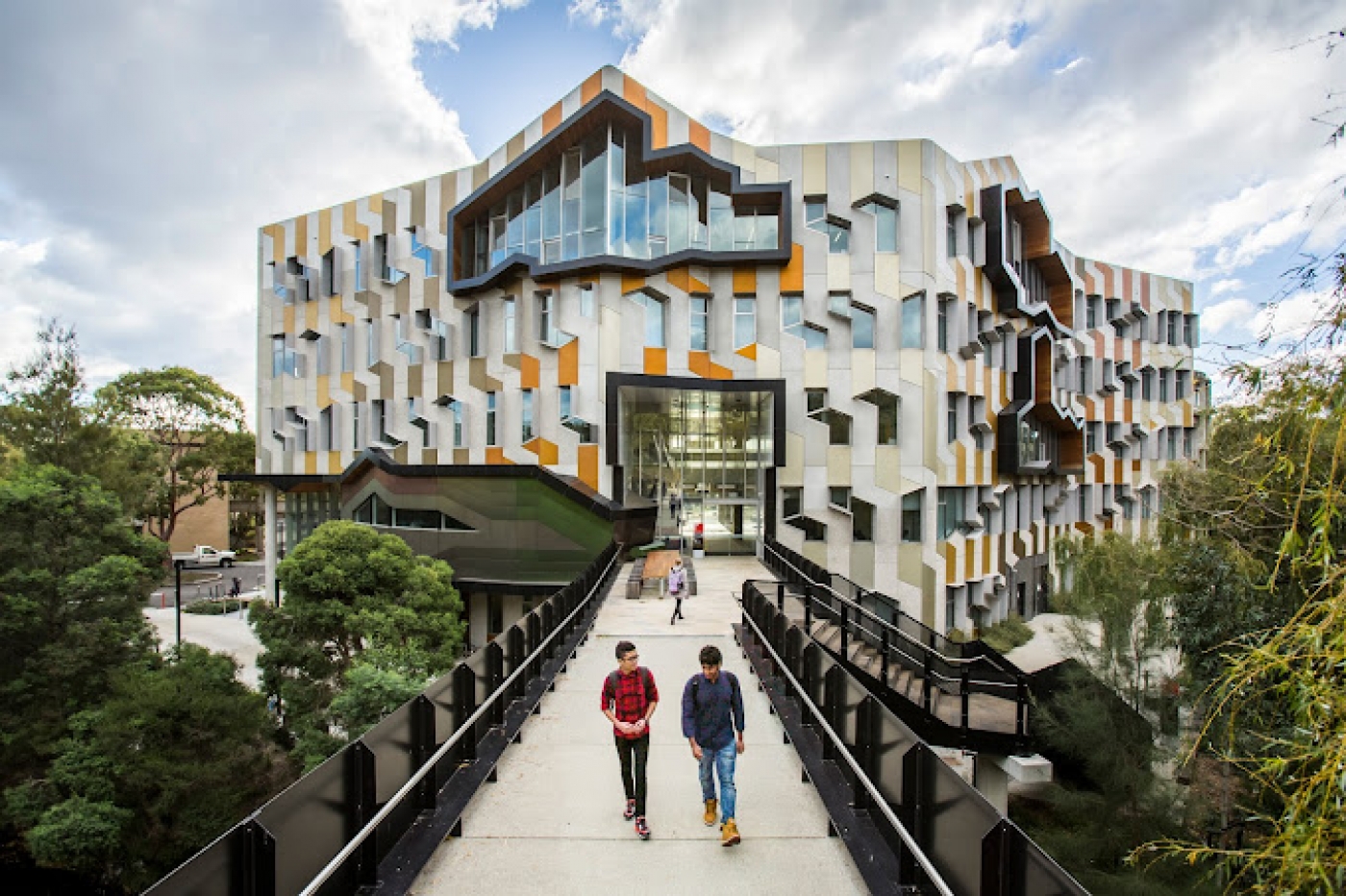
Home > Study in Australia > Navitas Group - La Trobe College - Melbourne Campus > Diploma of Bioscience, Leading to Bachelor of Science in Microbiology
Diploma of Bioscience, Leading to Bachelor of Science in Microbiology
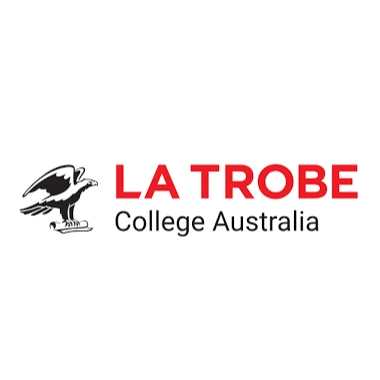 Navitas Group - La Trobe College - Melbourne Campus, Australia
Navitas Group - La Trobe College - Melbourne Campus, Australia

AUD 38160
Annual Tuition Fee

Free
Application Fee

36 months
Duration

6
IELTS

60
TOEFL

55%
Min GPA
Program Overview
Our Diploma is equivalent to the 1st year of a La Trobe University degree – only with tailored learning and more support.
Diploma of Bioscience
The Diploma of Bioscience provides you with a foundational understanding of molecular biology, ecology, epidemiology and chemical reactions and analysis. You’ll also develop the statistical modelling and research skills required to succeed in a scientific career.
This Diploma will set you on the knowledge path to help solve global issues or advise on sustainable methodology and practices. You’ll learn about the structure, functions and interactions of living organisms from the molecular level upwards and begin to discuss some big issues such as climate change, pandemic regulation, the protection of endangered animals and disease treatment.
Satisfactory completion of any Year 12 English and Mathematics is a prerequisite to this Diploma. Students who successfully complete the Diploma of Bioscience may be eligible to continue their studies in biotechnology fields at La Trobe University.
Gain direct entry into 2nd year of:
Bachelor of Science
More than ever, employers are searching for professionals with advanced STEM skills.* With job growth expected in this area* – including in areas that don’t even exist yet – there’s no better time to build the scientific skills you need to create a successful, interesting and satisfying career.
La Trobe's Bachelor of Science offers you foundational skills in science and the freedom to delve into your passions. Whether it's protecting endangered animals, developing new ways to treat disease or fighting climate change, you'll be ready to pursue your dream journey in science by tailoring your degree with a mix of majors and minors.
As you learn from leading academics and researchers, you'll take a deep dive into science – not only scientific concepts, but also how scientists think, work and share their findings.
Build skills in problem-solving, communication and collaboration – all highly sought after by employers – then use these skills to come up with innovative solutions to real-world problems.
Personalise your learning so you can spend time focusing on the areas that really interest you. Choose from majors in a range of fields, including botany, statistics, microbiology, genetics, data science and more, and learn from academics who are leaders in their fields.
You'll have opportunities to put theory into practice through work placements with our industry partners. Previous students have undertaken placements with CSIRO, Bayer Crop Science and various State and Federal Government departments.
You'll learn:
- Professional scientific thinking - Learn how science contributes new knowledge and finds solutions to problems in our society.
- Communicating as a professional scientist - Gain experience communicating to a range of audiences, both in written and verbal formats.
- Lab and fieldwork skills - Learn how to collect data and use specialist technical skills to develop new findings in the laboratory and in the field.
- Problem-solving and facing new challenges - Learn to develop solutions to complex scientific problems.
- Collaboration and working in teams - Collaborate and work effectively in teams to solve problems and achieve shared goals.
- Professional conduct and professional identity - Learn about ethical conduct when working as a scientific professional and how to promote and communicate your professional identity to potential employers and peers.
Major: Microbiology
Discover the invisible world of microorganisms and how they affect our lives. You’ll learn how bacteria and other microbes influence global warming, maintain the environment, help produce food and also impact our health through disease, drug resistance and waste control.
Additional Information
Program Level Undergraduate Pathway
College/University Processing Time 3 Days
Program Format Full-Time
Post-Study Work Rights (PSWR) 
General Admission Requirement
Academic Requirement
- Minimum Level of Education Required: To be accepted for this program, students must have Standard XII Higher Secondary Certificate.
Similar Programs
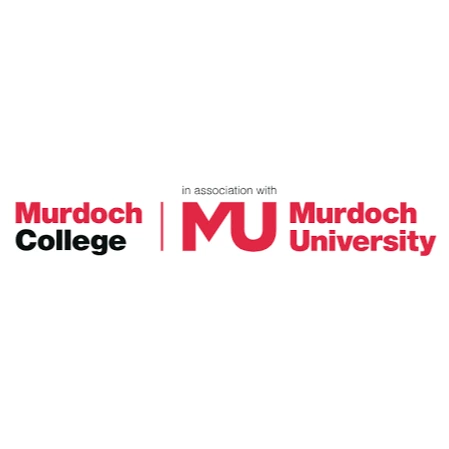

Kaplan Group - Murdoch College
Intake Oct 2025
Jun 2025

Application Fee

Duration
Test Score
5.5
IELTS
50
TOEFL
50
Min GPA


Kaplan Group - Murdoch College
Intake Oct 2025
Jun 2025

Application Fee

Duration
Test Score
5.5
IELTS
50
TOEFL
50
Min GPA


Kaplan Group - Murdoch College
Intake Oct 2025
Jun 2025

Application Fee

Duration
Test Score
5.5
IELTS
50
TOEFL
50
Min GPA


Kaplan Group - Murdoch College
Intake Oct 2025
Jun 2025

Application Fee

Duration
Test Score
5.5
IELTS
50
TOEFL
50
Min GPA


Kaplan Group - Murdoch College
Intake Oct 2025
Jun 2025

Application Fee

Duration
Test Score
5.5
IELTS
50
TOEFL
50
Min GPA


Kaplan Group - Murdoch College
Intake Oct 2025
Jun 2025

Application Fee

Duration
Test Score
5.5
IELTS
50
TOEFL
50
Min GPA


Kaplan Group - Murdoch College
Intake Oct 2025
Jun 2025

Application Fee

Duration
Test Score
5.5
IELTS
50
TOEFL
50
Min GPA


Kaplan Group - Murdoch College
Intake Oct 2025
Jun 2025

Application Fee

Duration
Test Score
5.5
IELTS
50
TOEFL
50
Min GPA


Kaplan Group - Murdoch College
Intake Oct 2025
Jun 2025

Application Fee

Duration
Test Score
5.5
IELTS
50
TOEFL
50
Min GPA


Kaplan Group - Murdoch College
Intake Oct 2025
Jun 2025

Application Fee

Duration
Test Score
5.5
IELTS
50
TOEFL
50
Min GPA


Kaplan Group - Murdoch College
Intake Oct 2025
Jun 2025

Application Fee

Duration
Test Score
5.5
IELTS
50
TOEFL
50
Min GPA


Kaplan Group - Murdoch College
Intake Oct 2025
Jun 2025

Application Fee

Duration
Test Score
5.5
IELTS
50
TOEFL
50
Min GPA


Kaplan Group - Murdoch College
Intake Oct 2025
Jun 2025

Application Fee

Duration
Test Score
5.5
IELTS
50
TOEFL
50
Min GPA


Kaplan Group - Murdoch College
Intake Oct 2025
Jun 2025

Application Fee

Duration
Test Score
5.5
IELTS
50
TOEFL
50
Min GPA


Kaplan Group - Murdoch College
Intake Oct 2025
Jun 2025

Application Fee

Duration
Test Score
5.5
IELTS
50
TOEFL
50
Min GPA


Kaplan Group - Murdoch College
Intake Oct 2025
Jun 2025

Application Fee

Duration
Test Score
5.5
IELTS
50
TOEFL
50
Min GPA


Kaplan Group - Murdoch College
Intake Oct 2025
Jun 2025

Application Fee

Duration
Test Score
5.5
IELTS
50
TOEFL
50
Min GPA


Kaplan Group - Murdoch College
Intake Oct 2025
Jun 2025

Application Fee

Duration
Test Score
5.5
IELTS
50
TOEFL
50
Min GPA


Kaplan Group - Murdoch College
Intake Oct 2025
Jun 2025

Application Fee

Duration
Test Score
5.5
IELTS
50
TOEFL
50
Min GPA


Kaplan Group - Murdoch College
Intake Oct 2025
Jun 2025

Application Fee

Duration
Test Score
5.5
IELTS
50
TOEFL
50
Min GPA
Tuition Fee
The values given below are estimated figures, excluding extra charges like material fee, student activity fees, athletic fees, health care, etc., for courses. To know more, please visit the Programs page.
Average Tuition Fee Per Year
38160
Tuition Fee
(AUD)
Free
Application Fee
(AUD)
29710 Per year
Average Cost of Living
(AUD)
The living costs include the total expenses per month, covering accommodation, public transportation, utilities (electricity, internet), books and groceries.
Check program website for more information about funding options.
Scholarships
Re-Enrolment Bursary
| Program | Scholarship Amout |
| Diploma Scholarship | 20% Re-Enrolment Bursary is offered to students from India. |
Progression Scholarships
- 15%, 20% and 25% scholarships
- Awarded for the duration of the degree
- Based on WAM (Weighted Average Mark) in Foundation or Diploma
| Scholarship | La Trobe Diploma WAM |
| 15% | 60 - 69.9 |
| 20% | 70 -74.9 |
| 25% | 75+ |
Not sure what you are looking for?
Don’t worry, we are here to help.
Popular Universities to Study Abroad
World class education waiting for you.
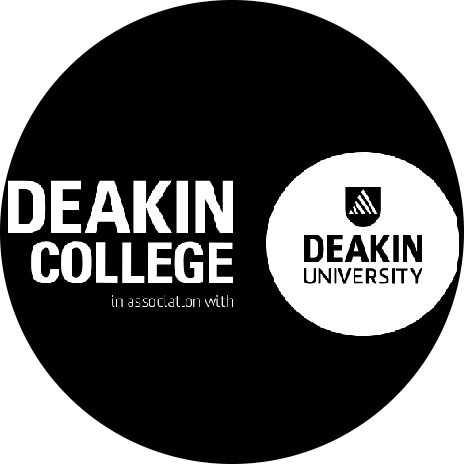
Victoria, Australia • 119 Programmes
Tuition Fee : AUD 30500 - 33500 / year
.png)
Victoria, Australia • 9 Programmes
Tuition Fee : AUD 26500 - 27000 / year
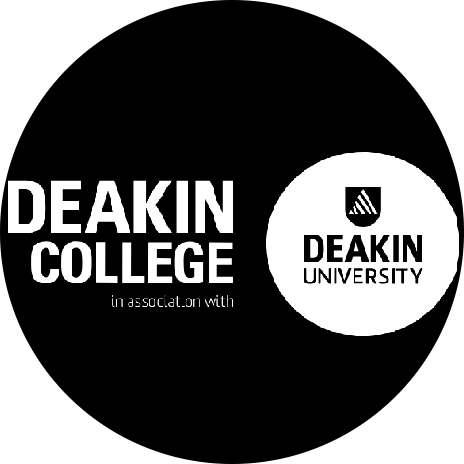
Victoria, Australia • 47 Programmes
Tuition Fee : AUD 30500 - 36000 / year

Victoria, Australia • 11 Programmes
Tuition Fee : AUD 19500 - 65000 / year
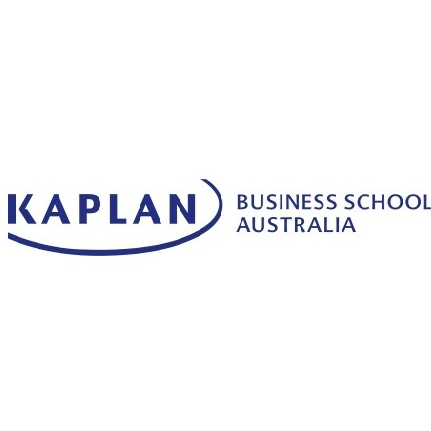
Victoria, Australia • 33 Programmes
Tuition Fee : AUD 22000 - 24000 / year
Top Places To Study In Canada
Province wise Popular university and colleges for Studying abroad.
Popular English Language Proficiency Exams
Blogs and Articles
Study in Australia Blogs & Articles
Masters in Project Management in Australia
Updated on • Feb 25,2025 04:02 PM IST • Australia
Public Relations (PR) Courses in Australia
Updated on • Feb 07,2025 11:03 AM IST • Australia
Post Study Work Permit in Australia
Updated on • Nov 18,2024 01:57 PM IST • Australia
Australia Study Visa - Requirements, Process, Fee, How to Apply & More
Updated on • Oct 08,2024 11:22 AM IST • Australia
Top 10 Benefits of Studying in Australia for Indian Students
Updated on • Jul 15,2024 05:41 PM IST • Australia
Australian Student Visa Interview Questions and Answers
Updated on • Jul 11,2024 03:26 PM IST • Australia
Updated on • Jun 12,2024 01:58 PM IST • Australia
Benefits of Studying in Regional Australia
Updated on • May 15,2024 04:28 PM IST • Australia
Study and Work in Australia: A Comprehensive Guide
Updated on • Apr 05,2024 12:59 PM IST • Australia
Universities in Perth (Australia) for International Students
Updated on • Feb 28,2024 01:04 PM IST • Australia
Master's Universities in Australia
Updated on • Feb 17,2024 03:17 PM IST • Australia
Job Opportunities After MS in Australia for Indian Students
Updated on • Feb 05,2024 04:53 PM IST • Australia
Popular Courses to Study in Australia
Updated on • Feb 02,2024 05:18 PM IST • Australia
MBA in Australia - Top Universities, Courses, Cost, Eligibility for Indian Students
Updated on • Jan 30,2024 09:56 AM IST • Australia
Cost of Living in Australia for International Students
Updated on • Jan 29,2024 11:27 AM IST • Australia
PTE Accepted Universities in Australia
Updated on • Jul 17,2025 05:09 PM IST • PTE
A Guide to Post Secondary Australian Education System for International Students
Updated on • Dec 16,2023 03:47 PM IST • Australia
Updated on • Oct 21,2023 11:49 AM IST • Australia
Masters of International Business in Australia: Universities, Admission Process, Scholarships, Jobs
Updated on • Nov 06,2023 11:57 AM IST • Australia
MBA Finance in Australia: Universities, Eligibility, Scholarships and Job Opportunities
Updated on • Apr 28,2025 12:46 PM IST • Australia









